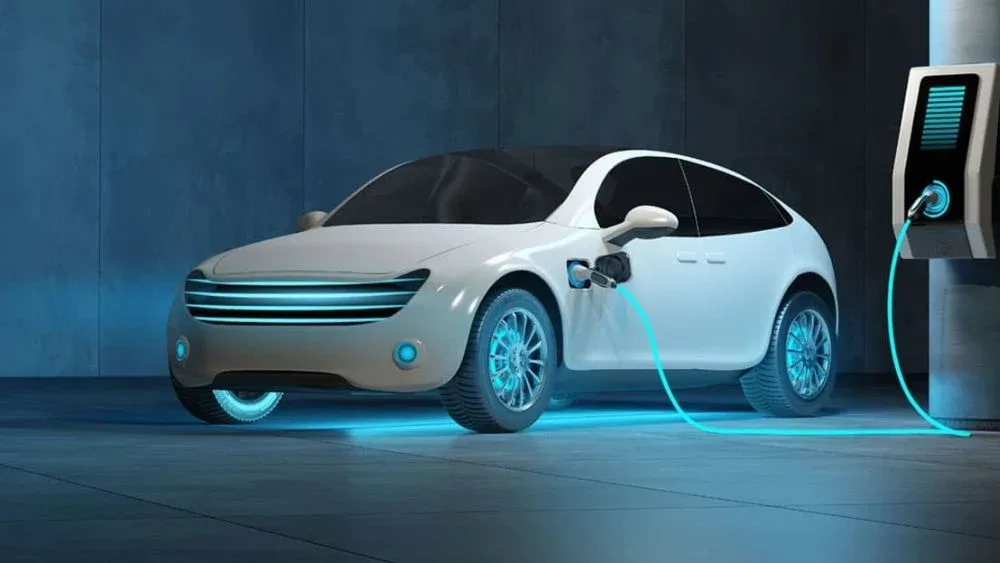Essential Guide to Electric Vehicle Maintenance Tips and Costs You Need to Know
Keep your electric vehicle running smoothly with our essential maintenance guide. Learn key tips, common tasks, and manage your electric vehicle maintenance cost with ease for a longer-lasting, efficient ride
Table of Contents
Introduction
The shift towards electric vehicles (EVs) has been accelerating as people seek more sustainable transportation options. While electric vehicles offer many benefits like lower emissions, reduced fuel costs, and a quieter ride, it’s essential to understand the importance of proper electric vehicle maintenance. Keeping your EV in top shape ensures that it remains reliable, efficient, and long-lasting. In this blog post, we’ll explore the basics of electric vehicle maintenance and how to manage the associated electric vehicle maintenance cost effectively.
The world of transportation is undergoing a significant transformation, and electric vehicles (EVs) are leading the charge. With their promise of reduced emissions, lower operating costs, and a quieter, more comfortable ride, it’s no surprise that more and more drivers are making the switch to electric. As this trend continues, it’s important to understand that owning an EV goes beyond just enjoying its benefits – proper upkeep is essential for ensuring that your vehicle stays in excellent condition and continues to deliver its best performance{1}.
While electric vehicles offer many advantages, they also come with their own set of care requirements. These cars are powered by advanced technology, which, though reliable, needs regular attention to ensure everything operates smoothly. From keeping the battery healthy to checking the tires and maintaining the brakes, staying on top of these tasks is key to extending the life of your vehicle{2}.
Fortunately, maintaining an EV isn’t as complicated as it might seem, and the costs involved are generally lower compared to traditional vehicles. By focusing on key areas of care and investing in routine checks, you can enjoy years of hassle-free driving while keeping your car running at its peak. In the sections to follow, we’ll explore the essential aspects of EV maintenance and how to manage the costs associated with keeping your electric car in top shape.

Why is Electric Vehicle Maintenance Important?
Electric vehicles are generally simpler than their gasoline counterparts, but they still require regular maintenance. Electric vehicle maintenance focuses on keeping the electric motor, battery, and other key components in peak condition. By staying on top of routine checks and maintenance tasks, you can avoid expensive repairs and maximize your vehicle’s lifespan{3}.
Unlike traditional cars, EVs don’t need oil changes or extensive engine repairs. However, there are still critical areas that need attention. Ensuring that your EV’s battery is healthy, checking the brake system, and maintaining the electric motor are all vital parts of regular electric vehicle maintenance{4}.
Key Components of Electric Vehicle Maintenance
- Battery Maintenance
The battery is the heart of any electric vehicle. Electric vehicle maintenance largely revolves around ensuring that the battery stays in good condition. This means avoiding deep discharges, keeping the battery within a moderate temperature range, and checking for any signs of degradation{5}. - Tires
Just like traditional vehicles, tires in an EV should be checked regularly. EVs can be heavier due to their battery packs, which can cause tire wear to occur faster. Keeping your tires properly inflated and replacing them when needed is crucial to maintain optimal performance. - Brake System
EVs use regenerative braking, which reduces the need for traditional brake repairs. However, this doesn’t mean that brake components are immune to wear and tear. Regularly checking the brake pads and fluid levels ensures that the braking system works smoothly when you need it{6}. - Cooling System
Many electric vehicles have liquid cooling systems to regulate battery temperature and prevent overheating. A well-maintained cooling system is critical for prolonging battery life and performance. - Software Updates
Modern electric vehicles rely on software for a variety of functions. Whether it’s optimizing battery performance, improving the driving experience, or fixing bugs, regular software updates are part of keeping your vehicle running well{7}.
Electric Vehicle Maintenance Cost What to Expect
While the maintenance costs for electric vehicles are generally lower than for traditional gasoline-powered cars, they still exist. Understanding the electric vehicle maintenance cost will help you budget for your EV ownership{8}.
- Battery Replacement: One of the most significant costs in EV maintenance is battery replacement. Depending on the make and model, a new battery can cost anywhere from $3,000 to $7,000. However, most EV batteries last for over 8 years, and many manufacturers offer warranties for 8-10 years.
- Tire Replacements: Due to the weight of the battery and unique wear patterns, tires on EVs may need replacing more frequently than in conventional cars. Expect tire replacement costs to be in the range of $150 to $300 per tire, depending on your vehicle{9}.
- Brake Repairs: Because of regenerative braking, EVs typically experience less wear on their brake systems, resulting in lower brake repair costs compared to traditional vehicles. Brake pad replacements may cost between $100 and $300, depending on the model{10}.
- Cooling System Maintenance: If your EV uses liquid cooling for the battery, it’s essential to keep the system in top condition. This maintenance is usually minimal but can cost between $100 and $300 for a check-up or refill{11}.
- Software Updates: While these are usually free or included in routine services, some manufacturers might charge for advanced updates. This typically isn’t a major cost but should be considered when factoring in the electric vehicle maintenance cost{12}.
How to Manage Electric Vehicle Maintenance Cost
While electric vehicle maintenance cost is generally lower than the cost of maintaining a traditional car, it’s still a good idea to plan ahead. Here are a few tips for managing costs:
- Regular Checkups: Keep track of your EV’s health by following the manufacturer’s recommended maintenance schedule. This will help you avoid major repairs that could lead to higher costs down the line{13}.
- Use Warranty Coverage: Many manufacturers offer warranties on batteries, electric motors, and other key components. Make sure you understand your coverage to avoid unnecessary costs{14}.
- DIY Maintenance: While complex tasks should always be handled by professionals, you can handle some basic maintenance tasks yourself. For example, checking tire pressure, cleaning the car, and ensuring software updates are installed can help reduce costs.
- Choose the Right EV Model: Some EVs are cheaper to maintain than others. Researching the long-term maintenance costs of different models can help you choose one that aligns with your budget{15}.
Understanding Electric Vehicle Maintenance What You Need to Know
As electric vehicles (EVs) continue to grow in popularity, many new owners are left wondering about the specifics of electric vehicle maintenance. While EVs have fewer moving parts than traditional gasoline-powered vehicles, they still require a certain level of upkeep to ensure they perform optimally. From the electric motor to the sophisticated battery system, electric vehicle maintenance focuses on essential tasks that extend the lifespan of your vehicle and keep it running smoothly{16}.
One of the biggest advantages of an electric vehicle is that it requires significantly less routine maintenance than a conventional car. There’s no need for frequent oil changes or worrying about the complexities of an internal combustion engine. Instead, EV owners focus on maintaining the battery, electric motor, brake systems, and software updates. Electric vehicle maintenance plays a vital role in ensuring your car remains in top shape for years to come. Whether you’re new to electric vehicles or a seasoned driver, understanding how to care for your EV can help you avoid unnecessary repairs and costs{17}.
Electric Vehicle Maintenance and Battery Health The Heart of Your EV
When it comes to electric vehicle maintenance, the most crucial component to keep an eye on is the battery. The battery pack is the heart of any electric vehicle, and its performance directly impacts your vehicle’s range and efficiency. Over time, like all batteries, the performance of an EV battery can degrade. However, most manufacturers offer warranties that cover the battery for up to 8-10 years or a set number of miles, which can significantly reduce the electric vehicle maintenance cost over the long term{18}.
To maintain optimal battery health, you should avoid extreme charging habits, such as letting the battery run to 0% or constantly charging it to 100%. Keeping the battery level between 20-80% is ideal for extending its life. Additionally, protecting your vehicle from extreme temperatures—especially hot climates—can help prevent unnecessary strain on the battery, thereby lowering the likelihood of expensive replacements{19}.
Regular battery checks as part of your electric vehicle maintenance plan can help you spot early signs of battery issues, such as reduced range or slow charging. Some EVs even offer diagnostics that can alert you to potential problems before they require costly repairs. Routine checks of the cooling system and electrical components also ensure that your battery remains in optimal condition, which can reduce the need for significant repairs in the future{20}.
How to Minimize Your Electric Vehicle Maintenance Cost
While electric vehicle maintenance is generally cheaper than maintaining a traditional car, there are still costs involved. The most significant contributor to the electric vehicle maintenance cost is typically the battery, which can be expensive to replace. However, knowing how to maintain your EV properly can help you keep these costs down.
- Proper Charging Habits: By avoiding deep discharges and overcharging, you can significantly prolong the lifespan of your battery. Proper charging practices will help you avoid unexpected replacement costs{21}.
- Tire Maintenance: Tires tend to wear out faster on EVs due to their heavier weight and instant torque. Regular tire rotations, proper inflation, and timely replacements will ensure that your tires last longer and don’t cause unnecessary expenses.
- Brake System Maintenance: EVs use regenerative braking, which reduces the need for frequent brake repairs. However, you still need to have your brake system inspected and the brake pads checked for wear. Keeping your brakes in good condition can prevent high repair costs{22}.
Understanding the Long-Term Value of Electric Vehicle Maintenance
One of the most significant benefits of electric vehicle maintenance is the long-term savings. While there are initial costs associated with maintaining an EV, these are often outweighed by the savings you experience over time. For instance, EVs don’t require fuel, and the cost of electricity for charging is generally lower than the cost of gasoline. With fewer mechanical parts, your car is also less prone to expensive engine repairs and breakdowns, unlike traditional vehicles{23}.
When factoring in the electric vehicle maintenance cost, it’s important to consider the reduced need for regular services that traditional vehicles require. An oil change is a typical, recurring expense for gasoline vehicles, but EVs do not need this type of service. This means less money spent on services over the lifespan of the vehicle. Furthermore, many EVs come equipped with software that can diagnose potential issues before they become major problems, preventing costly repairs down the line{24}.
Additionally, since EVs have fewer moving parts than internal combustion engine vehicles, they tend to last longer with less wear and tear. In the long run, the electric vehicle maintenance cost may be much lower than that of a traditional vehicle, offering greater value over time.
Final Thoughts on Electric Vehicle Maintenance
In conclusion, electric vehicle maintenance plays a pivotal role in keeping your vehicle running at its best while managing costs effectively. Regular maintenance tasks such as checking the battery, monitoring the brakes, maintaining the cooling system, and ensuring tire health are key to avoiding costly repairs and extending the lifespan of your EV. Although the electric vehicle maintenance cost may initially seem higher due to factors like battery replacement, the long-term savings and reduced need for frequent services more than make up for it. By staying proactive with routine care, you can ensure that your EV remains a reliable, efficient, and cost-effective mode of transportation for many years to come{25}.
By understanding both the maintenance tasks and the costs involved, you’re well-equipped to make the most out of your electric vehicle ownership. Enjoy the ride, save on repairs, and contribute to a cleaner, greener environment with regular electric vehicle maintenance{26}.

Common Myths About Electric Vehicle Maintenance and Costs
As electric vehicles become more mainstream, many misconceptions still surround electric vehicle maintenance and the overall cost. Some potential EV owners believe that EVs don’t need maintenance at all, or that they are far more expensive to maintain than traditional gasoline vehicles. It’s essential to debunk these myths to make an informed decision about EV ownership{27}.
One common myth is that EVs require no maintenance because they lack the traditional engine and complex mechanical systems. While it’s true that EVs have fewer parts that require routine services, they still need regular attention, especially the battery, tires, and brakes. Electric vehicle maintenance is critical to ensure the longevity of the vehicle and to maintain its performance over time. Another myth is that electric vehicle maintenance cost is extremely high due to the expensive batteries. While battery replacement can be costly, most EV batteries are designed to last for many years and come with warranties{28}.
Additionally, some believe that the overall ownership of an EV will be more expensive due to high electric vehicle maintenance cost. However, when you consider the savings in fuel costs, fewer parts to repair, and longer lifespan, EVs can actually save you money in the long run. By focusing on proactive electric vehicle maintenance, you can prevent costly repairs and enjoy a smooth, reliable driving experience without the hefty expenses often associated with traditional vehicles.
The Future of Electric Vehicle Maintenance and Costs
Looking ahead, the landscape of electric vehicle and associated costs is likely to evolve as technology advances. As more EVs hit the roads, manufacturers are continually improving the design and durability of their vehicles, which will have a direct impact on electric vehicle maintenance cost. For instance, advancements in battery technology, such as solid-state batteries, could drastically reduce maintenance requirements and lower the electric vehicle maintenance cost in the future{29}.
Another area of improvement is the expansion of charging infrastructure. As public and private charging stations become more widespread and efficient, the cost and convenience of owning an EV will improve. As a result, drivers will spend less time worrying about battery range and more time focusing on routine electric vehicle maintenance tasks. Plus, with more research and development in software and diagnostic tools, EVs will become even more efficient at alerting owners about potential maintenance issues before they become major problems. This could help owners save on unexpected repair costs and make it more affordable{30}.
Moreover, as the demand for electric vehicles grows, competition among manufacturers will likely drive down both the initial purchase price and the cost of maintenance. With more options in the market, consumers can choose EVs that suit their budget and maintenance preferences, helping to make electric vehicle maintenance cost more predictable and manageable.

Conclusion
In summary, electric vehicle maintenance is crucial to ensuring your EV remains in excellent condition for years. From the battery to the tires, brake system, and software, each component requires attention to ensure long-term performance and reliability. By staying proactive and following the recommended maintenance schedule, you can avoid costly repairs and reduce your electric vehicle maintenance cost over time{31}.
As technology evolves and more innovations are introduced, the future of electric vehicle maintenance looks bright, offering even greater convenience and affordability. With reduced costs, better technology, and the growing availability of charging infrastructure, owning an electric vehicle will continue to be a smart, cost-effective choice for eco-conscious drivers. Investing in proper electric vehicle maintenance now will ensure that your EV continues to perform at its best while helping you save money and reduce your environmental impact.
By debunking myths, planning for maintenance, and understanding the actual electric vehicle maintenance cost, you can confidently enjoy the many benefits of owning an electric vehicle—reliable performance, lower running costs, and a positive environmental impact.
By bestgaddi
FAQs
Do electric vehicles need regular maintenance like gas-powered cars?
Yes, electric vehicles still require regular maintenance, but usually much less than traditional cars. Since EVs have fewer moving parts, there’s no need for oil changes or spark plug replacements. However, components like tires, brakes, battery, and software updates still need attention as part of standard electric vehicle maintenance.
What is the average electric vehicle maintenance cost per year?
On average, electric vehicle maintenance cost is around 30–40% less than that of a gasoline vehicle. Depending on the model and usage, you might spend between $300 to $500 per year, mostly on tire rotations, brake inspections, and general check-ups.
How often should I service my electric vehicle?
Most EV manufacturers recommend a check-up once or twice a year. This includes battery diagnostics, software updates, tire inspection, and checking the brake system. Following the manufacturer’s service schedule is key to good electric vehicle maintenance.
Is electric vehicle battery replacement expensive?
Yes, battery replacement can be costly, ranging from $3,000 to $7,000 depending on the vehicle. However, most EV batteries are designed to last 8–10 years or more, and many come with long-term warranties. So, for most owners, it’s not an immediate concern and doesn’t add much to short-term electric vehicle maintenance cost.
Do electric vehicles need brake replacements often?
Not really. Thanks to regenerative braking, EVs use their motor to slow down, which reduces wear on brake pads. As a result, brake maintenance is less frequent, lowering the overall electric vehicle maintenance cost.
What’s included in a typical EV maintenance check?
A standard electric vehicle maintenance check includes:
Battery health diagnostics
Tire inspection and rotation
Brake system inspection
Coolant checks (for thermal management)
Software updates and system calibration
Can I do some electric vehicle maintenance myself?
Yes, some simple tasks like checking tire pressure, windshield wipers, and fluid levels can be done at home. However, tasks involving the battery or electrical system should always be left to professionals to avoid safety risks and added electric vehicle maintenance cost from incorrect handling.
Do electric vehicles have transmission problems?
EVs usually have single-speed transmissions, which are much simpler than multi-speed systems in gas cars. This means fewer chances of transmission issues and even lower electric vehicle maintenance cost.
How does cold weather affect electric vehicle maintenance?
Cold weather can temporarily reduce battery performance and increase energy use for heating. While this doesn’t directly increase electric vehicle maintenance cost, it’s important to keep your battery charged, park indoors when possible, and pre-condition the car before driving in cold climates.
Is electric vehicle maintenance covered under warranty?
Yes, most EVs come with warranties that cover the battery and electric drivetrain for 8–10 years. Basic electric vehicle maintenance like inspections or software updates may also be included during the initial service period, depending on the brand and service plan.





